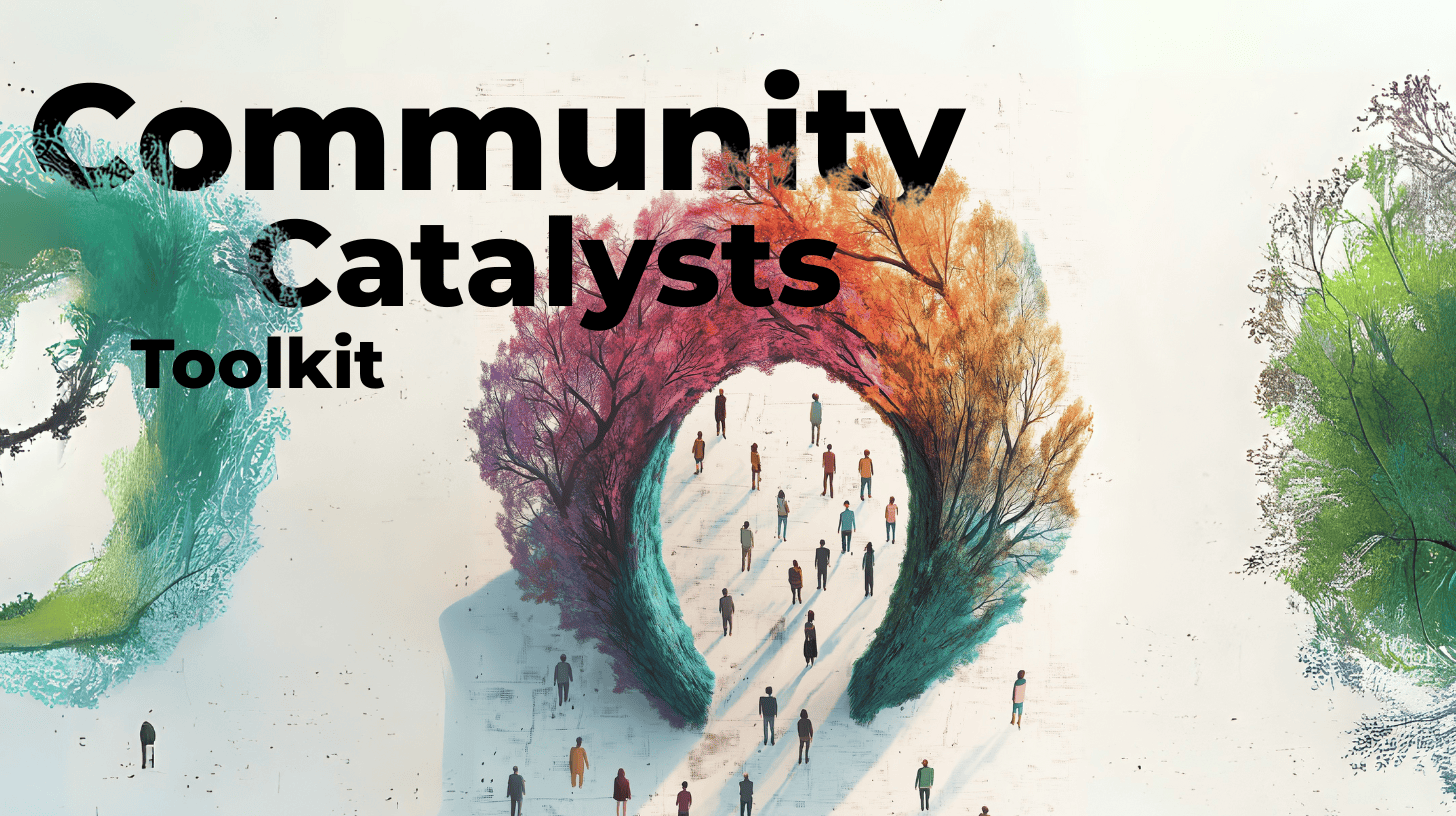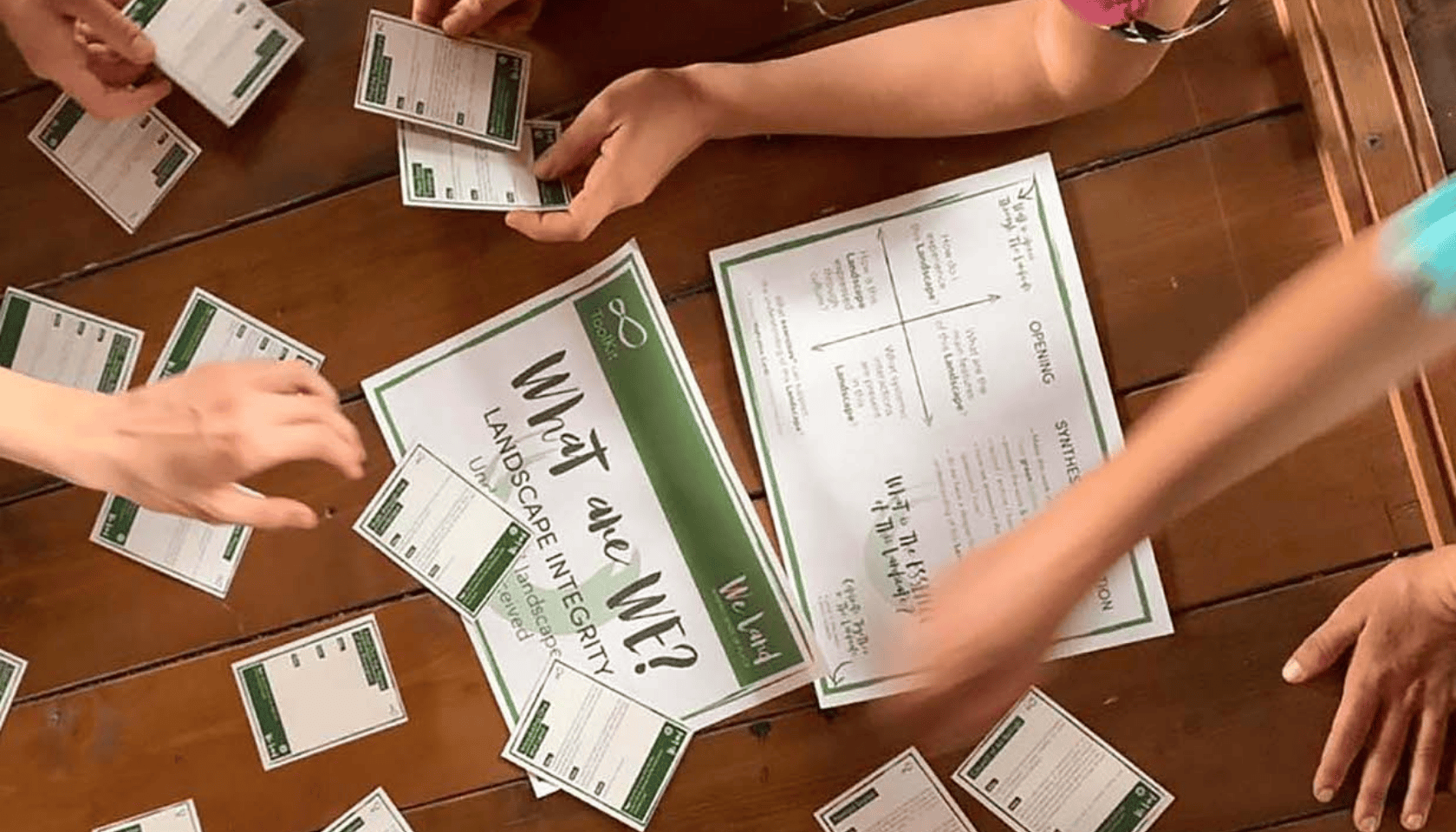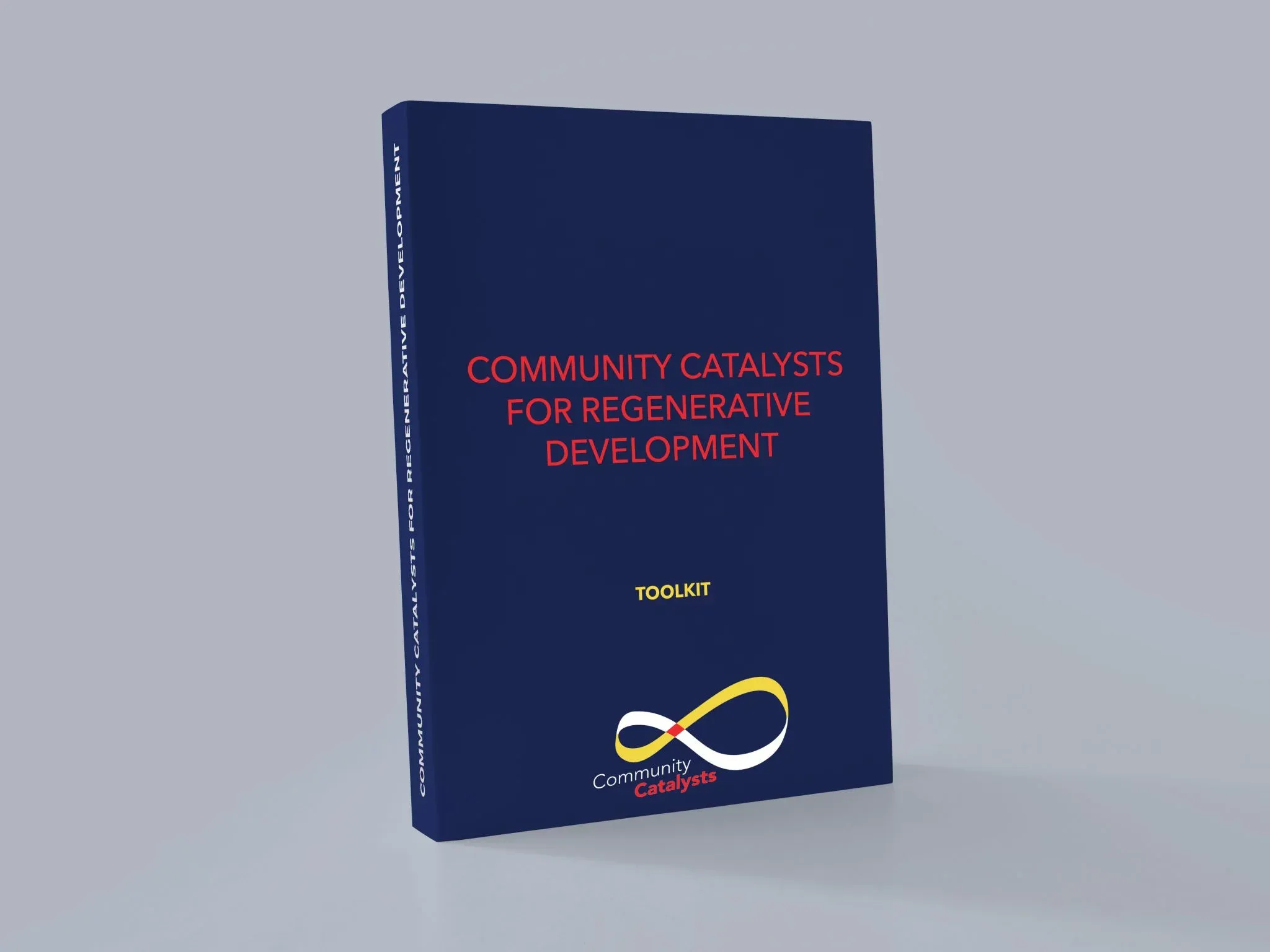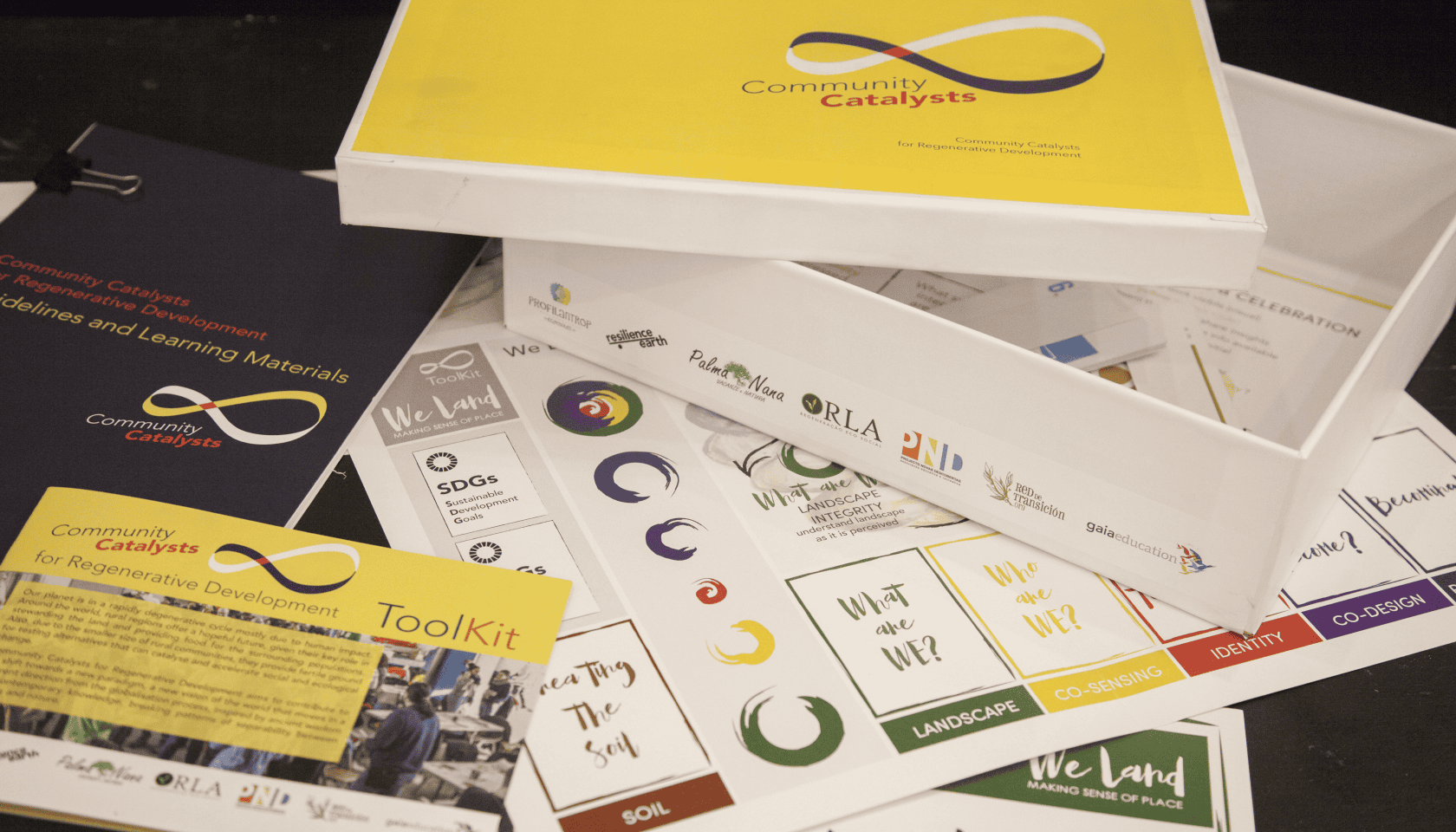Community Catalysts Toolkit

Typology
Game
Authorship
Resilience.Earth
Year of creation
2024
Scopes
Social Resilience
A gamification of the community catalyzing process
At a time when our planet is immersed in an accelerated degenerative cycle, caused by human impact, rural regions emerge as a beacon of hope. These communities have the potential to lead a deep change, as, thanks to their direct link with the land and its fundamental role in food production, they offer fertile ground to test alternatives that catalyze and accelerate social and ecological change. Through this gamification process, in which we have collaborated with rural organisations in Europe, we have created a dynamic space to transform this reality.
Community Catalysts for Regenerative Development is a process designed to activate a new world view, breaking traditional patterns of separation between humans and nature. Inspired by both ancestral wisdom and contemporary knowledge, this process seeks to generate a paradigm shift, which not only responds to local challenges, but contributes to global evolution, aligning itself with the 2030 United Nations Sustainable Development Goals. Through the game WeLand and the Community Catalysts platform, we offer an accessible and practical methodology to develop regenerative actions on a local scale, bringing sense of place and belonging.
What we propose with WeLand and the gamification of the community catalyzing process is a way to see change as an evolutionary process that goes beyond sustainability. Instead of limiting ourselves to maintaining the current state, we seek to generate an impact that not only preserves resources, but regenerates and makes them more resilient over time. Through WeLand, communities go through a nature-based design journey, a process that not only involves learning, but also the practical application of new dynamics. This gamification is not just a participation tool, but a way to integrate the ability to adapt and evolve as part of the system. The processes that we activate help communities to establish deeper relationships with their resources, making them part of an organic change that is sustained in their ability to self-organize and evolve autonomously. Thus, what we do is to create a regenerative flow where each action contributes to the continuous evolution of the system, improving cohesion, resilience and long-term adaptability.



